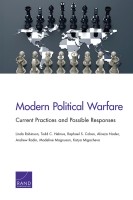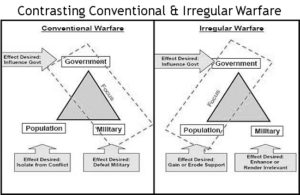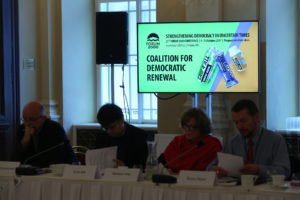 The United States is re-entering an era of great power competition, in which China and Russia “want to shape a world antithetical to U.S. values and interests,” according to the National Security Strategy issued by the White House in December 2017.
The United States is re-entering an era of great power competition, in which China and Russia “want to shape a world antithetical to U.S. values and interests,” according to the National Security Strategy issued by the White House in December 2017.
While there has been bipartisan consensus in Washington on a tougher approach to Beijing’s sharp power, critics see strategic ambiguity, The New York Times reports.
“The economic and security and technological and even scientific components of the U.S.-China relationship are now being conflated,” said Jessica Chen Weiss, a professor of government at Cornell University who studies Chinese politics and nationalism. “What’s worrying to many is not being able to decipher different levels of risk and how far and how quickly the efforts to indiscriminately decouple the United States and China will go.”
The U.S. is ill-equipped to counter the increasingly brazen political warfare that autocratic regimes are waging to undermine democracies, according to Pentagon and independent strategists writing in a white paper shared with POLITICO.

Source: Obrana a strategie
The U.S. is underestimating the scope of Russia’s aggression, which includes the use of propaganda and disinformation to sway public opinion across Europe, Central Asia, Africa and Latin America. The study also highlights the dangers of a growing alignment between Russia and China, which share a hostility towards the West’s international alliances and an affinity for “authoritarian stability.”
The authoritarian offensive is taking advantage of a malaise afflicting the West’s liberal democracies.
 Democracies are suffering from a profound crisis of confidence that has three fundamental causes, National Endowment for Democracy President Carl Gershman told the 27th Estoril Political Forum:
Democracies are suffering from a profound crisis of confidence that has three fundamental causes, National Endowment for Democracy President Carl Gershman told the 27th Estoril Political Forum:
- The first is that democratic leaders and liberal intellectuals have been demoralized and disoriented by the rise of populist and nationalist movements in reaction to the erosion of traditional religious, communal, and cultural norms and institutions. …
- A second cause is the bias against the nation-state by global elites whose thinking dominates global institutions and intellectual debate. According to economist Dani Rodrik, their globalist mindset alienates ordinary citizens and is also analytically mistaken, since the critical economic decisions that affect their well-being are taken at the domestic and not the international level. He calls the nation-state “the foundation of the capitalist order” and worries that the globalist mindset that weakens it will open “political paths for Right-wing populists to hijack patriotism for destructive ends.”
-

21st Forum 2000 Conference
The third cause of this crisis is the way the rise of social media has affected politics in democratic societies. According to a cluster of articles published in the January issue of the Journal of Democracy, social media erodes democratic politics in three ways: It encourages polarization by isolating people into separate “social-media echo chambers; it degrades the culture of democracy by fostering incivility and intolerance; and it undermines truth by providing platforms for the spread of rumors and lies, a tendency that has been encouraged by Russia and other malign foreign actors.
Reviving the democratic center requires a new and unifying civic patriotism – a central idea of The Prague Appeal for Democratic Renewal – which asserts that civic nationalism is not just compatible with liberal democracy but a necessary component of it, Gershman added. RTWT







